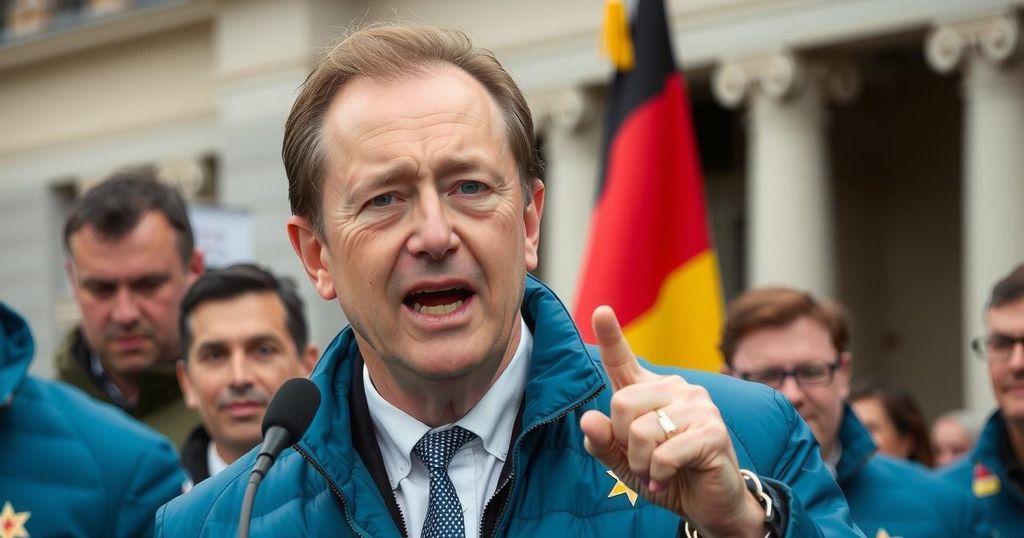Elon Musk endorsed the far-right AfD in a recent op-ed, claiming it is Germany’s hope amidst economic collapse. His statements sparked political outrage and resignation within the newspaper staff. With the AfD polling at 20%, concerns mount over Musk’s influence on German elections and media integrity.
On December 30, 2024, Elon Musk reiterated his support for Germany’s far-right party, Alternative for Germany (AfD), in an op-ed for the Welt am Sonntag newspaper. Musk proclaimed the AfD as the “last spark of hope” for Germany, which he believes is on the verge of “economic and cultural collapse.” He argued that a controlled immigration policy could help revive the German economy and prevent loss of national identity. Musk dismissed claims of the party being extremist, citing the party leader Alice Weidel’s same-sex relationship as evidence against such labels. His statements sparked considerable backlash among German politicians, leading to a resignation at the newspaper due to internal unrest regarding the publication of his piece. The current polling indicates that the AfD is positioned second with 20% support ahead of the upcoming legislative elections, raising concerns over the implications of Musk’s alignment with the party and its potential to increase the party’s visibility and legitimacy. Additionally, questions have arisen about the mechanics behind Musk’s op-ed being featured in Welt, known for its conservative stance, in the context of media integrity and press freedom.
The political landscape in Germany has been tense, particularly regarding the rise of the far-right AfD party, which has garnered significant attention from both the public and media outlets. Elon Musk’s foray into this political conversation highlights the growing trend of global business figures influencing national elections. This phenomenon raises questions about media responsibilities and the boundaries of free speech in journalism, especially given the ethos of impartiality expected within German public broadcasting. Musk’s involvement brings to light broader discussions about the intersections of politics, economics, and media in shaping public discourse.
Elon Musk’s endorsement of the AfD in Germany has elicited a strong response from political leaders and media professionals, leading to significant discourse about the role of powerful individuals in elections. While he emphasizes the party’s potential to avert economic decline, the backlash and controversies surrounding the publication of his op-ed signal a contentious blending of business interests with political expedience. As the upcoming elections approach, the debate around the implications of right-wing populism and the acceptance of such endorsements within mainstream discourse remains pertinent.
Original Source: www.dw.com






